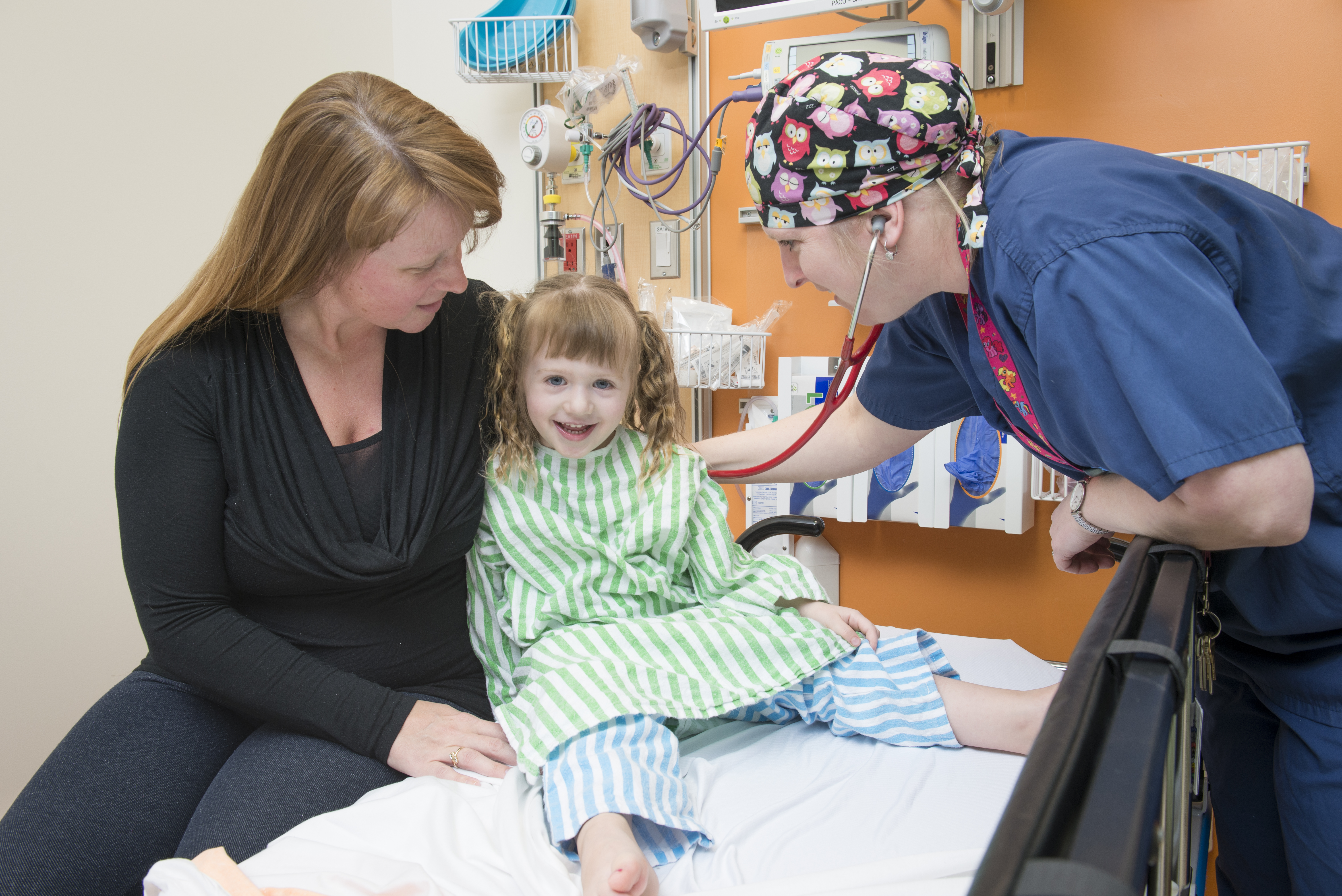Day of your surgery
These sections will help prepare you for your upcoming surgery and answer many questions you may have:
- Getting ready for surgery
- One day before surgery
- Day of your surgery
- After surgery
- Information for youth
| Checklist: what to bring on the day of surgery |
|
| Arriving at the Surgical Day Unit |
| Please arrive at the time provided. Arriving on time is very important because it will give everyone time to get ready for the surgery or procedure. You will find the Surgical Day Unit on Level 3 of the main CHEO building. In the Surgical Day Unit you will:
|
| Keeping health information private |
| Many families come for surgery at the same time. Patients and families may feel uncomfortable sharing information if others are standing close enough to hear. Please give other families enough space to keep their conversations with our staff private. You are not permitted to take photos or videos. Please consider the privacy of other families and our staff. |
| Be kind. Please don’t eat or drink in front of those who can’t! |
| While you are in the Surgical Day Unit waiting room (before surgery), please don’t eat or drink. Our patients can’t eat or drink and it can be hard for them to see others eating. If you bring food with you, keep it in a bag or out of sight. You can eat after your child or youth goes in for surgery. |
| While you are in the Surgical Day Unit |
The nurses:
|
| Supporting children and youth |
| Child life specialists are also available on the day of surgery. They can help explain what it’s like to have a surgery or procedure. Children and youth often have many questions about what will happen to them on the day of surgery. Child life specialists:
If you have any questions or concerns about preparing your child or youth for surgery, please contact a child life specialist at 613-737- 7600, ext. 3077. Volunteers (under the direction of Child Life Services) help support play activities in the playroom. Toys and activities help pass the time and help children to feel more relaxed. Children often express their feelings best through play. Please have slippers or clean shoes for your child or youth to wear into the operating room. Outdoor shoes are not allowed in the operating room.
|
| Going to the operating room |
| Different members of the health-care team will ask you questions before the surgery, and this is also an opportunity for you to ask questions and discuss the plan of care. This ensures that all members of the team have the same important information about the surgery of your child or youth. In many cases, the surgeon will use a marker to mark the site of the surgery.
Your child can bring a soft toy or blanket for comfort. |
| Parental presence in the operating room |
| We understand that surgery can be a stressful experience for families. We offer a program for eligible patients to have one parent, or other support person, stay with them for the start of anesthesia. The program is only available for scheduled surgeries (no emergency surgeries) where the patient is at least one-year old, medically stable without complex medical needs and wants to have a parent or caregiver with them. We may not be able to offer this program if we do not have a volunteer or child life specialist available. The anesthesiologist has the final decision about whether this program is right for your child or youth. In the operating room, you will help the most when you:
You are not allowed to take photos in the operating room. As children and youth become sleepy from anesthesia, some fall asleep quickly and others enter a stage of excitement, during which they may move their arms or legs. Some may seem dizzy, with noisy breathing or coughing. You may notice their eyes roll back. All of this is very normal. Your child or youth will not remember this stage. |
| During surgery |
| Please wait in the Family Waiting Room on Level 3 (room 3108 B, just in front of the elevators):
If time allows during your child or youth’s surgery or procedure, you may visit:
Please make sure one parent or guardian stays in the hospital. |
 Looking for translation?
Looking for translation?
Did you know: our care resources can be translated into over 100 languages using Google Translate! Click the Translate button on the top right corner of your screen and select your preferred language to get started.
Disclaimer
This resource is for educational purposes only, and was originally written in English and translated to French. Translation to any other languages is automatically provided through Google Translate, and not official. There may be subtle differences or inaccuracies. If you have any questions about medical matters including your care and treatment, please reach out to your health-care team.





